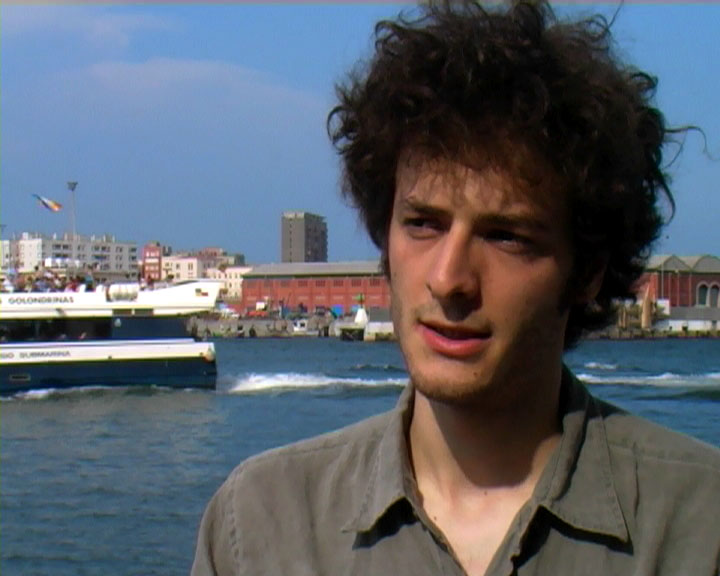 An Interview with Paolo Pedercini of Molleindustria
An Interview with Paolo Pedercini of Molleindustria
Nitewalkz: Can you please introduce yourself and your work?
Paolo Pedercini: I’m a part of the collective called Molleindustria, which is based in Milan. Our aim is to start a serious discussion about the political implications of videogames and also to produce various, very quick simple games – experimental games - to spread a political message and to criticize the mainstream videogames as a cultural form.
Nitewalkz: Your work is often considered as “gaming counterculture”. What does that mean to you?
Paolo Pedercini: I think we can consider it as a “counterculture”, but I don`t like it because our work has nothing to do with underground stuff. We want to be mainstream and we want to show a different point of view. I don`t think that e.g. “The Simpsons” are “counterculture”. There are some contents and issues that we can call “counterculture”, but the games are mainstream. Very good mainstream products.
Nitewalkz: Tell me about the forthcoming McDonalds-Videogame. What is it about??
Paolo Pedercini: The game is not only about McDonalds, but about the Fast-Food-Industry. It is supposed to be a simulation – not a scientifical, but a procedural simulation – of the processes that are hidden by the Fast-Food-Industry. Basically you have to manage the corporation and you have to choose many variables, to set up a lot of things and to control the production of the meals from the pasture to their brand value using advertising, marketing and PR. Our aim was to focus on the externalities and the influences on the society and the environment which industrial production has. And especially the Fast-Food-Industry!
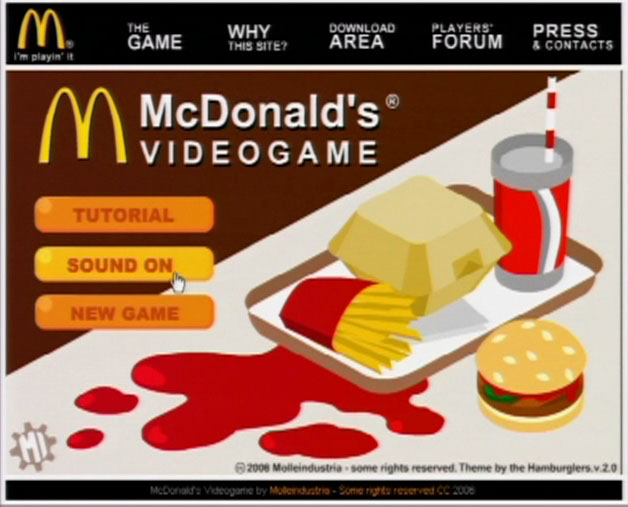
Nitewalkz: What’s about the gameplay?
Paolo Pedercini: The main purpose of the game is to find the hidden link of the production process. Basically there are four sections: The first one is the agricultural section, where you have to grow up the cows for the meat and to build the crop land to grow soy, because soy is the basic element for the cow fodder. The section section is the feeding lot, where the cows are narrowed with the grain feed fodder. The third section is the Fast-Food-Restaurant: you have to manage the crew members and to discipline, punish or even fire them. The last section is the headquarter section: marketing divison, pr division, the board of directors. You have to set up the advertising campaign and to corrupt politicans and nutritionists.
Nitewalkz: Is it possible to stay in the game without cheating and doing „bad“ things??
Paolo Pedercini: No! Actually it is almost impossible. It`s very difficult to have a succesful buisness and very few people can do it. Anyway: the few people who suceed in the game are forced to use dirty tricks, like putting hormones in the fodder or using genetical manipulated soy and so on…
Nitewalkz: Why did you choose McDonalds and not Burger King? McDonalds is often criticized by many people, and Burger King not at all!?
Paolo Pedercini: I think that the people are clever enough to understand that this is not a unique critic of McDonalds. McDonalds is just beeing used as a symbol for the whole Fast-Food-Industry and the whole meat industry. We choose the brand McDonalds only to show that the game is dealing with something that is real, that is related to our everyday life.
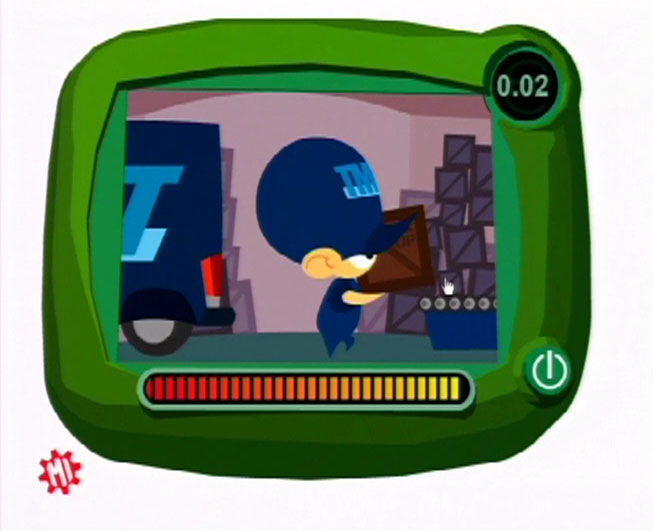
Nitewalkz: Another game from Molleindustria is called Tuboflex. What is it about?
Paolo Pedercini: Tuboflex is about the flexibilisation and the precarisation of labour. In the game you have to control an employee. The game is set up in the near future, where a big corporation has invented a “staffing solution”: A complex tube/pipe-system to allocate the work force in real time. So you have to control this worker who is continuously sucked up and spitted of by this tubes. The player is always trying to keep him survive in this crazy labour market, which is very near to the everyday experience of the precarious workers.
Nitewalkz: So called McJobs.
Paolo Pedercini: Yep, because McDonalds was probably the first company which was based on those jobs.
Nitewalkz: Is it your aim to spread Subliminal Messages by coding computergames??
Paolo Pedercini: Oh no, absolutely not. I think all that subliminal controversy about advertising is quite a 90s hype, because in some ways all advertising is subliminal. It’s not about inserting hidden frames in a movie. All the messages (in our games) are quite clear, because we want to show a product that is clearly political in order to demystify the idea that the normal, not political related games, are innocent. In some ways we can say that all games are political, because they are dealing with cultural and ideological issues. So we choosed to make the statement quite clear – in an ironic way –, because we want to show that all games are political.
Nitewalkz: Are you really reaching an unaware audience with your games? Or is it only a well informed insider audience??
Paolo Pedercini: In the case of the McDonalds-Videogame, I think most people don’t like McDonalds, of course, but it’s a sort of unconscious hate. Very few people have good arguments against them. Usually the problem with McDonalds is simplified in the fact that it is junk-food, that is not good and healthy. But there are all lot of more important problems about McDonalds. Probably most of the people who are actually playing the game don’t like McDonald and are not the usual customers, but we hope to give a broader view on the problem. For the other games we received a lot of feedback from people who are absolutely not political engaged. We often claim that it is important for us not to produce games to entertain radical people, but doing radical games.
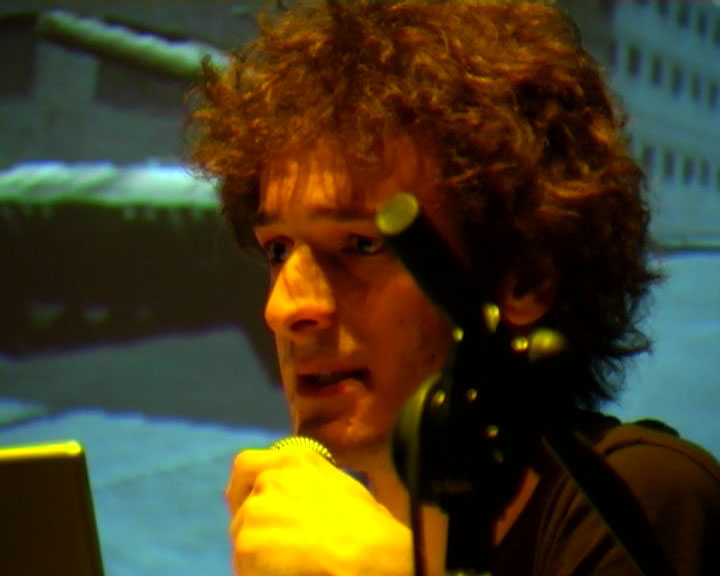
Nitewalkz: Are you using Public License to spread your games?
Paolo Pedercini: We are using a Creative Common License, because the games are made in Flash, so there is no sense in using Open Source. Only a few games are Open Source, so that you can modify them. But all the games are of course free to copy and to distribute in the internet.
Nitewalkz: What are the main issues when you are planning games? Gender, racism, globalization, modern labour market?
Paolo Pedercini: It depends on the game and if we can join a good gameplay with a good issue. We always wanted to do a game about immigration issues, but we didn`t find a way to express.
Nitewalkz: Is your work influenced by the Situationist International?
Paolo Pedercini: I think it is an important landmark, but it’s quite overrated by many theoreticians of counterculture. Of course they were the first people who theorised some concepts, but there are also a lot of other influences. But yeah! (Smiles) I’m very influenced by Guy Debord!
Nitewalkz: The Molleindustria-Logo reminds me a bit of social realism or the socialist production of signs…?
Paolo Pedercini: Yes, also the name Molleindustria means “soft industry”. It’s a very simple decontextualisation or transformation of some soviet influences or styles. The idea with our animated header was to give a frame for what we are doing. We are living in the information era and there is no heavy industry in the western society. So we choosed to determ this style in a cute way.
Nitewalkz: What is Culture Jamming?
Paolo Pedercini: All activities that are dealing with the recombination of symbols, media and culture. It’s a very broad topic. In the 90ies it was strongly related to the subversion of the advertising and branding culture. Now as the advertising culture is pushing the boundaries outside the traditional advertising using e.g. guerilla marketing techniques, the subversion of the brand culture has to follow the evolution of the advertising industry and start to work on the expanded advertising: videogames, product placement, street marketing. Sometimes there are contradictions in the things that we do: Culture Jamming is about surfing this kind of contradictions. We have to be aware that we are inside the market and there is NO outside...
| 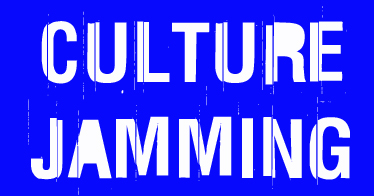
 An Interview with Paolo Pedercini of Molleindustria
An Interview with Paolo Pedercini of Molleindustria

